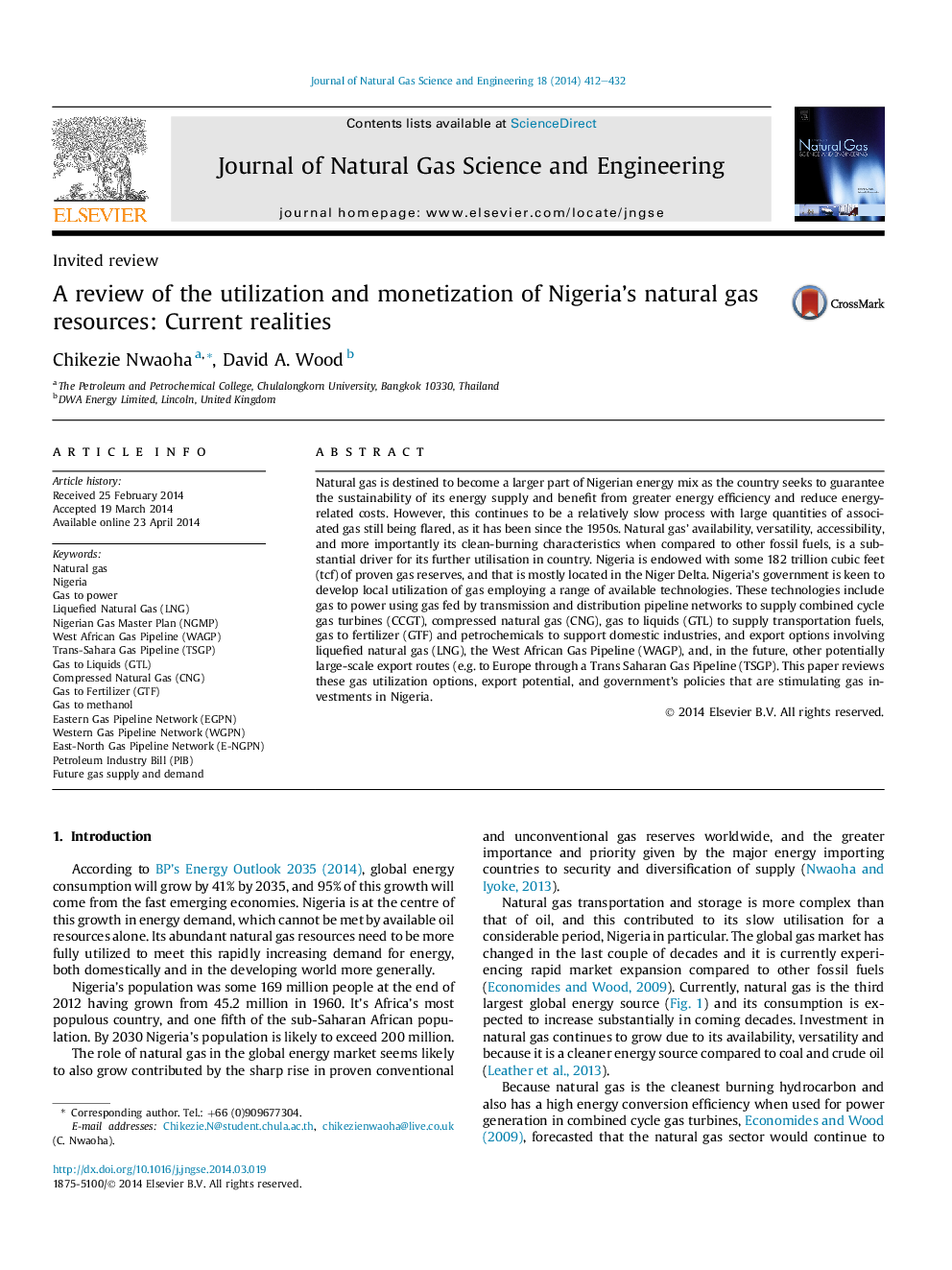| کد مقاله | کد نشریه | سال انتشار | مقاله انگلیسی | نسخه تمام متن |
|---|---|---|---|---|
| 1757955 | 1523022 | 2014 | 21 صفحه PDF | دانلود رایگان |
• Nigeria's natural gas resources and gas demand and supply status are described.
• We reported Nigeria's framework of natural gas utilization and conversion routes.
• Planned and existing natural gas pipeline transmission and distribution in Nigeria.
• Issues surrounding gas flaring and the future of Nigeria's gas industry.
• Government regulations, policies, reform and partnership favouring gas utilization.
Natural gas is destined to become a larger part of Nigerian energy mix as the country seeks to guarantee the sustainability of its energy supply and benefit from greater energy efficiency and reduce energy-related costs. However, this continues to be a relatively slow process with large quantities of associated gas still being flared, as it has been since the 1950s. Natural gas' availability, versatility, accessibility, and more importantly its clean-burning characteristics when compared to other fossil fuels, is a substantial driver for its further utilisation in country. Nigeria is endowed with some 182 trillion cubic feet (tcf) of proven gas reserves, and that is mostly located in the Niger Delta. Nigeria's government is keen to develop local utilization of gas employing a range of available technologies. These technologies include gas to power using gas fed by transmission and distribution pipeline networks to supply combined cycle gas turbines (CCGT), compressed natural gas (CNG), gas to liquids (GTL) to supply transportation fuels, gas to fertilizer (GTF) and petrochemicals to support domestic industries, and export options involving liquefied natural gas (LNG), the West African Gas Pipeline (WAGP), and, in the future, other potentially large-scale export routes (e.g. to Europe through a Trans Saharan Gas Pipeline (TSGP). This paper reviews these gas utilization options, export potential, and government's policies that are stimulating gas investments in Nigeria.
A global framework of natural gas process extraction, utilization and conversion routes. Many of these routes for natural gas are being exploited and considered in Nigeria. However, because gas and oil resources in Nigeria are sweet there is little sulfur produced, the hot climate means that using gas for space heating is not necessary and industrial demand for hydrogen remains limited.Figure optionsDownload high-quality image (190 K)Download as PowerPoint slide
Journal: Journal of Natural Gas Science and Engineering - Volume 18, May 2014, Pages 412–432
